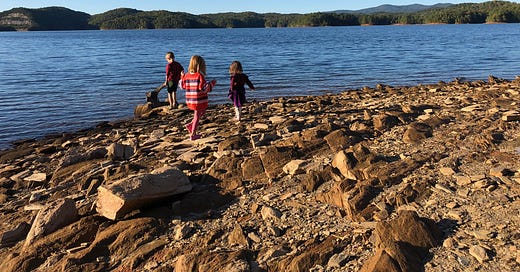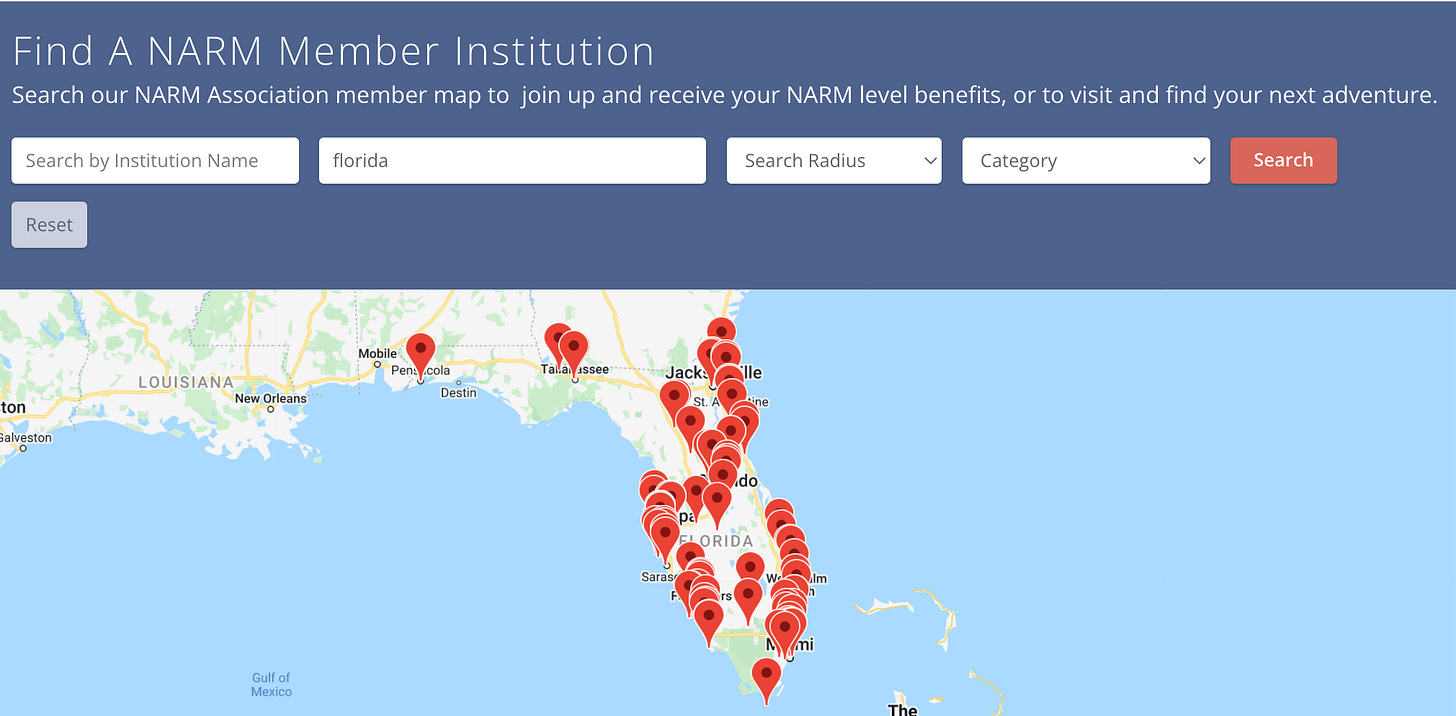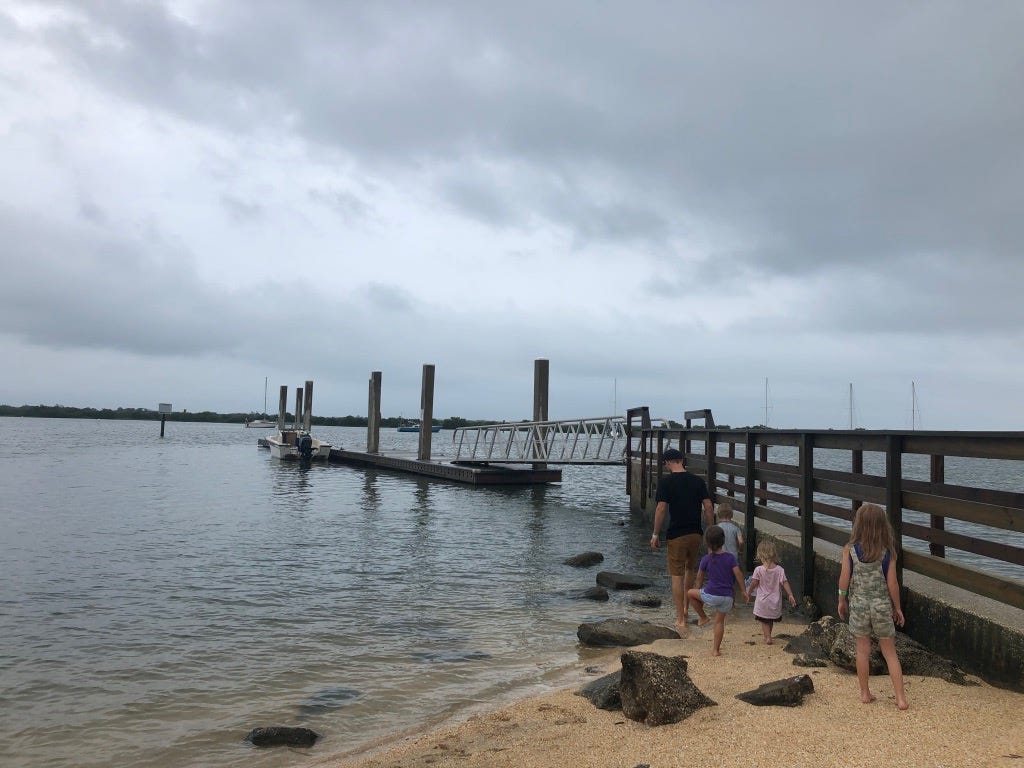March 4 / Bonus // Planning a Last-Minute Road Trip
Here are some principles and practical tips for planning a trip of any length!
This is Hope writing, and it feels tone-deaf to talk about spring break travel when Ukraine is under unimaginable distress. I don’t know how anyone on the outside could ever process invasion and suffering like that with enough grief.
But I still want to share about this because, in times of great global instability, something like focused family time together can bring great comfort to your kids (and you.) Maybe we do need to get mentally prepared for something like World War III. Disrupting the regular patterns of life for a few days and refocusing in new surroundings can do much good for your family.
Here are some tips.
1. Go where it’s not crowded.
This is my #1 travel tip, for many reasons:
The locals don’t want crowds. Imagine being a resident of Gatlinburg, Paris, or NYC. You pay a lot of money to get to live there, but in tourist season, you have to wait in line for an hour at your favorite café.
There’s no shame in visiting popular places, but you just might want to consider how the locals might feel about your timing.There are other places that do want attention. Small businesses only have capacity for so many people, and for every decent restaurant with a long wait, there’s a fantastic restaurant somewhere else that is on the brink of shutting down from lack of customers.
Your trip will be more peaceful. Spring break and summer weekends are not the best time to visit Disney’s Magic Kingdom. Being pushed around by crowds and paying exorbitant prices for popcorn are very likely to irritate at least someone in your family. If you have an overstimulating trip, you’ll get back from your getaway still feeling stressed.
You’ll find lower prices. Traveling off-season, or in overlooked places, you’ll be able to find better promotions and lower cost-of-living overall.
You’ll get better pictures. Pictures with open space just look good. A shot that only has your kids in it is going to look better on your walls or in your family yearbook.
When searching for places to visit, you might find some good results by checking Google or Pinterest for “Hidden gems in _______” or “Most underrated towns in _____.”
2. Don’t underestimate what even a two-night trip could do for your family.
Trips are intended to be superglue for your family! You’ll create memories together, learn new surroundings together, and make it through non-ideal circumstances together. You might meet interesting people (and be interesting people!) You might realize something new about nature that you’d never noticed before. And you’ll probably create some great inside jokes as a family.
As you plan, define your purpose: is the purpose of this trip to enrich their education (like DC?) Is the goal to spend time with extended family (like the middle of nowhere in Ohio?) Are you trying to relax and unplug (like camping at a nearby campground?) Is your goal to see epic sights (like Ouray, CO?) Are you hoping to explore somewhere new (like Greenville, SC?)
Make sure your destination and itinerary line up with what your family needs from this trip.
3. Live like a local.
Google Maps is your friend. Search “playgrounds near _____” and see which ones look really cool.
Don’t go to places strictly based on popularity. Shopping malls might have thousands of reviews on Google Maps, yet the breathtaking waterfall two miles away might have less than a hundred. That’s clearly not an accurate estimation of a place’s worth.
Ask locals what they like best. Ask someone, “what are your favorite non-touristy spots?” We’ve discovered some awesome things this way (and locals seem to enjoy answering that question.)
For a certifiably magical evening, be intentional about where to catch the sunset. Google “best sunset views in ____.” Give yourself plenty of time to enjoy the whole golden hour before it, too.
Find a good thrift shop for souvenirs! Chances are you’ll score a more worthwhile memento than a gift shop keychain. (Thrifting is also a smart move if you’re somewhere seasonally different than your home. Colorado thrift stores are a gold mine for inexpensive winter gear!)
As previously mentioned, Pinterest is actually a great place to research trips. Small Mommy-blogs written by locals are likely to have way better information than the big sites that show up on Google first. Search “things to do with kids in _____” and many of the options will probably be free.
4. If you have a pass to a local museum, see if it has any reciprocal benefits.
For example, let’s say you live in the Tampa area and you have a family pass to the Great Explorations Children’s Museum. That pass gives you ACM benefits (50% off at over 160 museums) and ASTC benefits (free admission to over 350 participating museums.) My favorite reciprocal network is NARM. Here are all the Florida museums you can visit if you have a pass in the NARM network. (All the above reciprocal programs are nation-wide; I just used Florida as an example.)
You’ll want to call ahead and make sure they’re still accepting reciprocal memberships, of course. Some museums have changed their rules because of Covid (which makes sense.) If you go, make sure you leave a review to help out that museum! Your foot traffic, participation, and good reviews validate the funding that the museum gets from donors and the government.
5. Leave room in your itinerary to wander.
Some of the best places we’ve found have been because we just pulled over when something looked interesting. It’s good to have ideas of where to go, but sometimes your best moments are in the quiet places where every member of your family activates that “exploration” part of their brain. It keeps you young.
6. Make a criticism truce.
Someone once told me that every attempt at a family vacation in his childhood was ruined by his parents’ arguing. That was his biggest memory from each trip. It’s just not worth it. New situations can bring up new stress (and underlying disagreements) but now is not the time to deal with them.
Now is a time for setting an example of gratitude, positivity, and peacemaking. Make a truce with your spouse beforehand that no criticisms need to be made—even if someone made a mistake while planning or a wrong turn while driving—and ask yourselves what will really matter 20 years from now when your kids are grown and describing their childhood to someone else.
7. Bring some normalcy with you.
Lastly, pick a couple routines that your family is used to and bring them with you on your trip. Stories before bed, a sound machine, morning devotions…everyday things in a new location seem to pack a special punch, and they help children (and adults) who struggle with change to sense a little more stability.
Hopefully this helps as you think about travel for spring, summer, and beyond. You don’t have to feel bad about spending some money on a road trip, because you’re supporting a local economy and investing in your family. Define your goals before the trip and let them guide you.
Warmly,
Hope from Family Scripts











Excellent tips!
Awesome post, Hope!